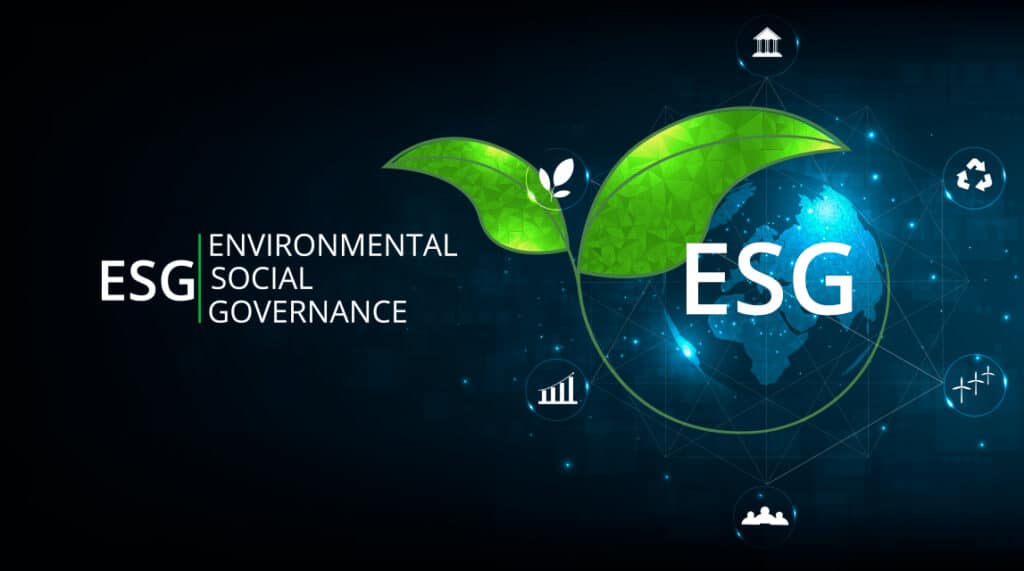
ESG reporting involves a set of standards utilized by investors, stakeholders, and companies to evaluate a company’s performance beyond financial metrics. It scrutinizes a company’s environmental, social, and governance practices and how they influence its long-term sustainability and risk management. It looks into areas such as efforts to combat climate change, relationships with employees, the makeup of the board, executive pay, and strategies to mitigate risks.
In contrast, sustainability reporting takes a holistic approach, focusing on the enduring sustainability of the planet, society, and economy. Its goal is to address present needs while safeguarding the ability of future generations to meet their own needs. This includes assessing the impact of businesses on the environment and implementing measures to improve resilience, resource efficiency, and societal advancement.

Significance of ESG Report in Singapore
Prioritizing ESG reporting is important for organizations in Singapore as it can boost their corporate image and help manage potential risks. In 2016, the Singapore Exchange (SGX) implemented the Sustainability Reporting Guide, which mandates all listed companies to disclose their sustainability practices in a ‘comply or explain’ approach.
1. Environmental Sustainability
Singapore emphasizes environmental sustainability through various initiatives to reduce environmental impact and promote conservation. Therefore, many companies are encouraged to minimize their carbon footprint, protect natural habitats, and preserve water resources to align with the nation’s sustainability goals and contribute to climate change mitigation.
2. Social Responsibility in Singapore
Social responsibility in Singapore includes promoting fair labor practices, fostering diversity and inclusion in the workforce, and ensuring ethical supply chain management. ESG reporting may cover a company’s plans for employee well-being, community engagement efforts, and adherence to human rights standards, reflecting their dedication to creating a socially conscious and inclusive business environment.
3. Regulatory Governance in Singapore
The regulatory landscape in Singapore is evolving to prioritize ESG reporting, with frameworks like the SGX Listing Rules and the Environmental Protection and Management Act. These regulations compel organizations to disclose their ESG performance, with SGX Listing Rules requiring listed companies to reveal significant ESG risks and management strategies. The Environmental Protection and Management Act establishes environmental compliance standards. By complying with these regulations and embracing ESG reporting, Singaporean organizations can ensure legal adherence, mitigate reputation risks, and demonstrate robust governance practices.
Popular ESG Report in Singapore
1. Global Reporting Initiative (GRI)
The GRI is a widely recognized reporting framework that offers guidance to organizations on disclosing their economic, environmental, and social impacts. It presents a broad set of indicators and metrics that enable organizations to assess and report their ESG performance. In Singapore, many companies use the GRI framework to prepare their sustainability reports, bolstering their credibility and facilitating comparisons.
2. Sustainability Accounting Standards Board (SASB)
Another significant framework is the SASB, which provides sector-specific guidelines for reporting financially material ESG information. The SASB standards are tailored to individual industries, focusing on the ESG topics most relevant to them. By adhering to SASB standards, organizations in Singapore can tailor their ESG reporting to align with their sector’s needs and meet the expectations of investors and stakeholders.
3. Task Force on Climate-Related Financial Disclosures (TCFD)
The TCFD framework has also gained traction in Singapore, offering a structure for organizations to assess and disclose climate-related risks and opportunities. It encourages companies to disclose information on governance, strategy, risk management, and climate change metrics and targets. Integrating ESG reporting in this way enables organizations to demonstrate their preparedness for climate risks and their commitment to transitioning to a low-carbon economy.
Benefits of ESG Reporting for Businesses
While regulatory requirements play a role, Singaporean businesses are also recognizing the numerous benefits of robust ESG reporting:
- Enhanced Investor Confidence: Transparency in ESG practices attracts investors seeking sustainable investment opportunities. Strong ESG performance can lead to improved access to capital and lower borrowing costs.
- Risk Management: Identifying and mitigating ESG risks helps companies avoid potential financial and reputational damage associated with environmental incidents, social controversies, or poor governance practices.
- Brand Reputation and Customer Loyalty: Consumers are increasingly conscious of a company’s social and environmental impact. A well-developed ESG strategy and transparent reporting can enhance brand reputation and attract environmentally and socially conscious customers.
Conclusion
In sum, ESG plays a crucial role in evaluating a company’s performance beyond financial metrics, focusing on environmental, social, and governance practices to ensure long-term sustainability and risk management. In Singapore, prioritizing ESG reporting is essential for organizations to enhance their corporate image, manage risks, comply with regulations, and demonstrate commitment to environmental sustainability and social responsibility. By adopting frameworks such as GRI, SASB, and TCFD, Singaporean companies can align their ESG reporting with industry-specific needs, improve transparency, attract investors, and strengthen their brand reputation. Embracing ESG reporting not only helps businesses navigate regulatory requirements but also drives operational efficiency, risk management, customer loyalty, and overall sustainable growth in the ever-evolving business landscape.


